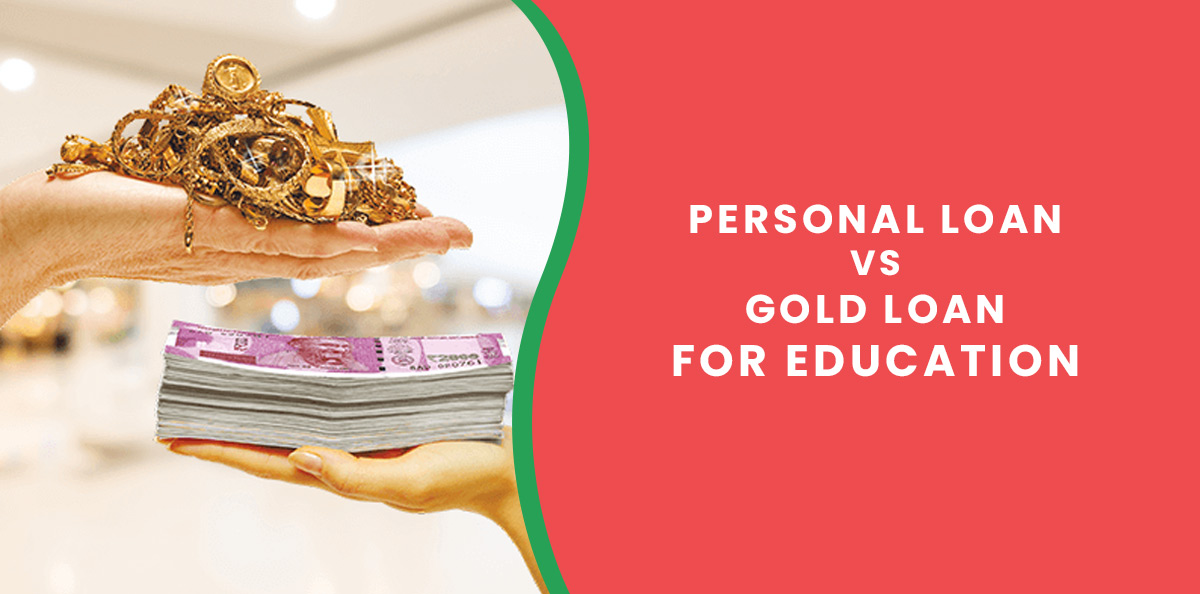

Date:04/08/2022
A quality education is the basis for a stable job and a higher salary. However, its rising price has put it beyond reach for the majority of people. Consequently, the majority of individuals choose to obtain loans from banks or NBFCs in order to finance their higher education. Those who are unable to obtain regular loans due to a lack of co-borrower, guarantor, or adequate collateral, or due to a low ranking of the institution, may wish to apply for a personal loan or sometimes, gold loan.
This article compares the attributes of a gold loan versus a personal loan for the purpose of assisting consumers in determining which may work best for them.
Both forms of loans have minimum and maximum borrowing limitations set by lenders. The limit for gold loans is often between Rs. 10,000 and Rs. 50 lakhs. The borrowing limit for a personal loan might range from Rs. 50,000 to Rs. 20 lakhs or even more. This loan limit differs between lenders.
Therefore, if you wish to borrow more than Rs. 20 lakhs, a gold loan is your best alternative. You can obtain a gold loan for less money.
Loans secured by gold jewellery are short-term loans with terms ranging from 6 to 12 months. In contrast, you can obtain a personal loan with terms ranging from 12 to 60 months.
A gold loan can be an excellent solution if you only need to obtain a short-term financial education situation. However, if you wish to borrow a long term loan, you can opt for a personal loan.
A gold loan is a secured loan because you must pledge your gold as collateral for the loan amount. A personal loan, on the other hand, is an unsecured loan that does not require collateral. Consequently, personal loans are marginally more expensive than gold loans in terms of interest rates.
The majority of leading lenders provide gold loan rates below 9 percent. In contrast, the interest rate for a personal loan might range from 12% to 20%.
The additional fees you are asked to pay when you take out the loan, such as the processing fee, are some factors to consider. This can be 2 percent or more of the loan amount for a personal loan. Even if you choose to prepay a personal loan, you may incur up to 5 percent or more in prepayment fees.
A gold loan’s processing cost is typically around 1 percent of the loan amount.
Personal loans have stricter eligibility standards because they are unsecured. Before approving the loan, the lender will evaluate your monthly income, age, work experience, type of employment, and credit score.
Gold loans have minimal eligibility requirements compared to personal loans. You merely need to be at least 18 years old and the legal owner of the gold you wish to offer as collateral for the loan.
Clearly, there are significant distinctions between a personal loan and a gold loan. Personal loan limits are greater, and their terms are also longer compared to gold loans. However, with a gold loan, you will receive a more favorable interest rate, fewer qualifying conditions, and fewer fees.
As both forms of loans have advantages and disadvantages, a borrower might choose one based on his or her needs. Consider a personal loan if you need to borrow a large sum over a longer period of time. You can proceed with a gold loan if you own gold jewels and require loans of up to Rs. 50 lakhs that you can repay within a short time frame.